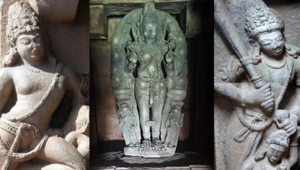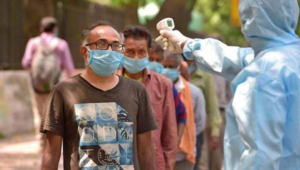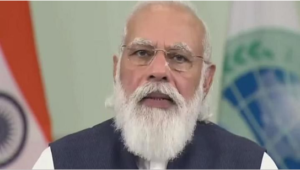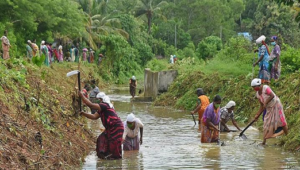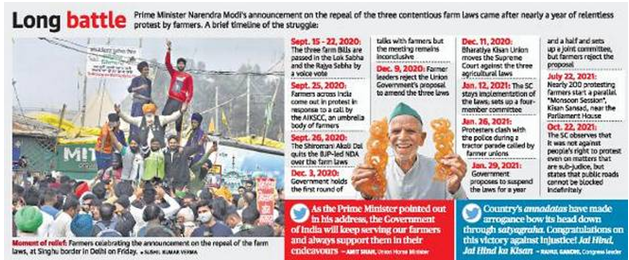
The News Editorial Analysis 20th November 2021
Govt. relents, decides to spike farm laws

PM announces the repeal of the three Acts in address to the nationHe says process will be completed in the winter session of ParliamentModi apologises to nation for not being able to convince farmers
Prime Minister Narendra Modi on Friday announced the repeal of the three contentious farm laws, assuring farmer groups protesting against them for the past year that the legislative process for the withdrawal would be completed in the coming winter session of Parliament.
In a television broadcast to the nation, Mr. Modi also announced the formation of a committee with representatives from both the Central and State Governments to look into issues related to agriculture, such as zero-budget farming, fertilizers, change in crop patterns, transparency in establishing minimum support prices and so on.
The Government’s intentions in bringing in these laws was to provide alternatives to small farmers, who constituted 80% of farmers in the country, for access to markets and good prices for their crops, he stated.
“I apologise to you, my countrymen, that despite my Government’s good intentions, there may have been something lacking in our tapasya [penance] that we could not convince some of our farmer brothers of the intentions of these laws which were as pure as the light from a lamp,” he said.
‘Organised dialogue’
“Earlier Governments too had considered such measures and we consulted a range of stakeholders and experts before bringing in these laws. Many farmers were happy with the reforms and we are grateful to them. We could not explain to some farmers despite our efforts. Agricultural economists, scientists and progressive farmers also tried their best to make them understand the importance of agricultural laws,” he noted.
“Even though this section was not a huge part of the larger category of farmers, it was important for us that we convince them. We tried engaging them in dialogue, we listened to their arguments and the logic that they put forward, we agreed to suspend the implementation of these laws for two years, and the matter has also been put before the Supreme Court. Particular sections of the laws that they objected to were also removed, but may be there was something lacking somewhere that we were not able to convince this section of farmers,” he said.
Globetrotting Kerala tea-seller no more
Vijayan and his wife had returned from a trip to Russia just a fortnight ago
K.R. Vijayan, who shot into the limelight for his travels around the world along with wife, Mohana, using the savings from their small tea shop here, died of a heart attack on Friday. The couple had returned from a trip to Russia just over a fortnight ago. He was 71.
He was planning his next trip to Japan and his wish list also included Vietnam and Cambodia.
The globetrotting tea-seller couple had visited 26 countries across six continents in the past 14 years and was featured in the national and international media.
Their tea shop next to Salim Rajan Road in Kochi is adorned with photographs from their many foreign trips.
Maiden trip in 2007
The couple started travelling with a trip to Egypt in 2007. They initially raised the required funds through bank loans, which they repaid from their daily savings of as little as ₹300 from the tea shop. But, as the number of trips increased, so did the loans. However, as their fame spread, they started getting sponsors and they no longer had to pay for their travels. The couple’s trips to Australia, New Zealand and Russia were sponsored.
Brand ambassador
Mr. Vijayan, who considered life as countless journeys strung together, also had a trip to Singapore lined up to inaugurate the office of a travel agency of which he was the brand ambassador.
Last year, the couple brought out a book titled Chaaya Vittu Vijayanteyum Mohanayudeyum Loka Sancharangal, which loosely translates to ‘The global tours of Vijayan and Mohana by selling tea’.
The Tourism Department paid tributes to Mr. Vijayan by sharing his picture on twitter, calling him an “intrepid traveller who embarked on his final journey”.
Debate over ‘sir’, ‘madam’ reaches Kerala rights panel
Commission registers case following complaint by activist
The Kerala State Human Rights Commission (SHRC) has filed a case in connection with the ongoing debate over the issue of using the salutation ‘sir’ and ‘madam.’
The SHRC has registered the case following a complaint by rights activist Boban Mattumantha, who is in the forefront of a campaign against the use of expressions from the colonial period to address those in governance. Several local bodies across the State came forward to drop the use of ‘sir’ and ‘madam’ as part of the campaign.
Mr. Mattumantha approached the SHRC in the wake of a reply he got from the Additional Chief Secretary, Personnel and Administrative Reforms, confirming ‘sir’ and ‘madam’ as mere words of respect. The official said ‘sir’ and ‘madam’ were being used extensively as terms of respect among people, including in government offices.
However, Mr. Mattumantha questioned the Government argument saying government employees rarely address people approaching them for various purposes using ‘sir’ and ‘madam’ and instead the former expect the people to address them using ‘sir’ and ‘madam.’
“This is against the ethos of democracy enshrined in our Constitution. We are still following the colonial culture left behind by the British even 74 years after we secured freedom,” he said.
In his complaint to the SHRC, Mr. Mattumantha pointed out that people’s representatives, including Ministers, MPs and MLAs, were rarely using the term ‘sir’ and ‘madam’ when writing to or addressing their counterparts. “Our Chief Minister Pinarayi Vijayan wrote to his Tamil Nadu counterpart addressing him as ‘Stalin ji’ and to Prime Minister Narendra Modi addressing him as ‘Modi ji’ ,” he said.
Tamil Nadu constitutes FinTech Governing Council
It will help in the establishment of companies in the State
The Tamil Nadu Government has constituted a FinTech Governing Council to facilitate the establishment of FinTech companies in the State.
The Industries Minister and the Chief Secretary will be its Chairperson and Vice-Chairperson respectively. Three members from the FinTech sector are also in the council. They are Balaji Nuthalapadi, Managing Director and Head of Operations & Technology, Citi South Asia; Sundar Kannan, who is a director of a leading Wall Street investment banking corporation; and Ramkumar Ramamoorthy, former Chairman and Managing Director of Cognizant India and past president of the Madras Chamber of Commerce and Industry.
The Secretaries of the Departments of Industries, Finance, Information Technology and Micro, Small and Medium Enterprises are members. The Managing Director and Chief Executive Officer of Guidance Tamil Nadu will be the member-convener. The Chief Executive Officer, FinBlue/Director, Software Technology Parks of India, Chennai Centre, is also a member. The government order constituting the council was issued last week.
The council is mandated to monitor the progress and implementation of initiatives in FinTech and related sectors.
It will form subcommittees to address various themes in the FinTech policy such as marketing and branding, business development and outreach, partnerships, education, venture capital and regulation. The council will also list the support of experts and specialist institutions. Additional representatives from the government, the industry and the academia will be included in the council as required for the activities to be undertaken.
The defeat of hubris, a confrontation on hold
Addition of local agrarian demands into the call for the repeal of the farm laws may have forced the Government’s hand

The repeal of the three farm laws by the Union government, on Friday, marks a historic victory for the farmer’s movement in India. For more than a year, thousands of farmers had barricaded Delhi, and their protests were gradually evolving into a pan-Indian movement of resistance. The belated, though wise, decision by the Government to repeal the laws brings down the curtains on the agitation in Delhi but is unlikely to douse the political fervour it has left behind.
The Union government’s response to the protests were appalling and marked by hubris. Its focus was on controlling and positivising the narrative. Efforts were made to break, divide, buy out, demean, denigrate, demonise and shame the protesters, who were conveniently branded as terrorists and Khalistanis. Sedition cases were filed against the protesters. Teargas shells rained on the protest marches, and officials publicly asked the police to smash the heads of protesters. In Lakhimpur Kheri, Uttar Pradesh, a vehicle was driven into a peaceful demonstration, killing several persons. That the protests endured and survived such brutal responses is indeed salutary.
The broader context
“Reforms” in agriculture, advocated by right-wing economists after 1991, were focused on dismantling the institutional support structures in Indian agriculture that were established after the 1960s. These support structures — in prices, subsidies, credit, marketing, research and extension — were instrumental in India’s achievement of food self-sufficiency between the 1960s and the 1980s.
In agricultural marketing, the focus of attack was the mandis governed by the Agricultural Produce Market Committee (APMC) Acts passed by State Assemblies. It was argued that if India needs to diversify its cropping pattern into export-oriented and high-value crops, mandis need to give way to private markets, futures markets and contract farming. The APMC Acts discriminated against farmers by not allowing them to interact directly with the big corporate buyers and exporters. So, the APMC Acts must be amended so that any private market or rural collection centre can freely emerge anywhere without approval of the local mandi or the payment of a mandi tax, and so that contract farming can be popularised. Similarly, the advocacy for the amendment to the Essential Commodities Act, 1955 rested on the view that private corporate investment can be incentivised into storage and warehousing if stock limits are relaxed for traders.
It was a long-held constitutional consensus in India that agricultural marketing was the legislative arena of State governments. Thus, in 2003, the Union government prepared a Model Act on agricultural marketing and sent it to States for passage in State Assemblies. This was followed by the preparation and circulation of two other Model Acts, in 2017 and 2018. Reception to these Model Acts was neither dismissive nor welcoming. Many States selected a few clauses, which they found attractive and suitable to their contexts, and accordingly amended their APMC Acts between 2003 and 2020. Only one State — Bihar — used the occasion to completely annul its APMC Act in 2006.
Laws were unconstitutional
The consensus was broken in 2020, when the Union government took up on itself the task of legislating on agricultural marketing and passed the farm laws. Federal principles were violated as the Union government invoked Entry 33 of the Concurrent List to intervene into matters in Entry 14, Entry 26 and Entry 27 of the State List. The farm laws even interfered with Entry 28 of the State List, which were not subject to Entry 33 of the Concurrent List. Thus, to begin with, the farm laws were reasonably and justifiably argued to be unconstitutional.
However, the Supreme Court of India refused to act swiftly on petitions filed before it. Instead, without consulting the protesting farmer’s organisations, it appointed, in January 2021, a committee of four persons, all of whom had publicly declared their support for the farm laws. Farmer’s organisations, on their part, distanced themselves from the committee and continued with their agitation.
Apart from constitutionality, the contents of farm laws were also widely criticised. Bihar’s example showed that private investment was unlikely to flow into agricultural markets even if APMC Acts were annulled. In fact, the exploitation of farmers by unscrupulous traders intensified in Bihar after 2006. Kerala never had an APMC Act.
Yet, there was little presence of private investment in its agricultural markets. Maharashtra delisted fruits and vegetables from the ambit of APMCs in 2016. Still, the inflow of private investment into agricultural markets was only marginal. Thus, what was likely was that a formal and regulated market might fragment itself into an informal and unregulated market if the APMC Acts were weakened. Furthermore, two other problems were highlighted. One, mandi taxes were used to invest in rural infrastructure in States such as Punjab. If mandis are weakened, what would substitute for such investments? Two, even if private markets emerged, how would they address the structural problem of poor farm-gate aggregation of the produce of small and marginal farmers? Would one middleman be simply substituted by another? Proponents of farm laws had no convincing answers.
The grievance redress mechanisms for contract farming also came up for criticism. The obliteration of the power of civil courts and their substitution with a weak mechanism led by the sub-divisional magistrate threatened to be a serious impediment to a just redress of complaints. It was feared that this may benefit corporate sponsors more than the contracting farmers.
It pointed towards corporates
Finally, the overall thrust of the farm laws appeared to encourage the participation of larger corporate players in agricultural markets rather than farmer-friendly organisations, such as cooperatives or Farmer Producer Companies (FPC). Especially in the case of the amendment of the Essential Commodities Act, there was reasonable suspicion that a handful of corporate players were to substantially benefit from investments in logistics, storage and warehousing.
The farmers’ protests began from States such as Punjab and Haryana where the mandis were deeply rooted institutions in the local economy and society. However, as days passed, the agitation spread to western Uttar Pradesh and from there to many other States. In a few months, the agitation threatened to grow into a pan-Indian phenomenon with a constant addition of local agrarian demands into the larger demand for the repeal of farm laws. Such local customisation of the agitation immensely helped in the cause of mobilisation. An unusually large number of women actively participated in the protests. In regions such as western U.P., the protests also threatened to bridge and repair the communal fault lines that were consciously cultivated after the Muzaffarnagar riots of 2013. Numerous protesters perished on the protest grounds, but support for the protests grew not just domestically, but also globally.
A mindset of intolerance
It was not just hubris that marked the Government’s response, but also infantilism. When pop star and celebrity Rihanna tweeted a rather innocent comment about the protests, the entire machinery of the ministry of external affairs was awoken for an extraordinarily disproportionate response. Indian embassies were asked to spread the word that she and other celebrities were propagandists who had irresponsibly ganged up to discredit progress in India. These responses showed nothing but a deeply disturbing official mindset of intolerance and insecurity.
The repeal of the farm laws has, at least temporarily, put an end to an ugly and eminently avoidable chapter of confrontation between the Union government and the farmers. However, the momentum that the agitation has left behind would surely linger on. The agitation has led to a positive politicisation of several agrarian demands, including the need for stable markets and remunerative prices. A confidence has grown that committed struggles matter and even aggressive governments can be made to kneel. New rural mobilisations around demands to address the larger and persistent agrarian crisis are likely to emerge and grow. We surely are in for interesting times.
Weigh future potential when awarding relief: SC
Bench reverses HC order on accident victim
The real possibility that a bright future was in store for a young accident victim before it was cut short tragically should be considered while determining compensation, the Supreme Court observed in a judgment.
“To have the perception that he is likely to remain static and his income to remain stagnant is contrary to the fundamental concept of human attitude which always intends to live with dynamism and move and change with the time,” a Bench led by Justice M.R. Shah said.
The court was dealing with the death of a 21-year-old engineering student in an accident. The Madhya Pradesh High Court calculated his monthly income at ₹5,000. Justice Shah said the court had committed a grave error.
“Even labourers were getting ₹5,000 per month under the Minimum Wages Act… the High Court ought not to have considered the income of the deceased at ₹5,000,” the court observed.
Justice Shah noted “the High Court has not considered the future rise in income while awarding the future loss of income”.
“Looking to the educational qualification and the family background, the deceased was to have a bright future. We are of the opinion that the income of the deceased at least ought to be ₹10,000,” the court said. The future rise of income of the road accident victim should be taken into consideration even if he or she was not earning at the time of death.
The prospective rise in income should be calculated after considering cumulative factors, namely, passage of time, the changing society, escalation of price, the change in price index, the human attitude to follow a particular pattern of life, etc.
“We are of the opinion that even in case of a deceased who was not serving at the time of death and had no income at the time of death, their legal heirs shall also be entitled to future prospects by adding future rise in income, i.e., addition of 40% of the income determined on guesswork considering the educational qualification, family background etc., where the deceased was below the age of 40 years,” the court held.
Higher GST rates disappoint textiles, clothing industry
‘Move will lead to higher prices for common man, inflation’
The Centre’s notification on higher GST rates for several textile and apparel items from January next has come as a blow to micro, small and medium-scale textile and clothing units with industry groups asserting the move will push up prices for consumers and spur inflation.
In an industry where almost 80% of the units are in the MSME segment, fixing 12% for fabrics and garments will only lead to higher prices for the common man, said Sanjay K. Jain, chairman of the Committee on Textiles, Indian Chamber of Commerce.
“The industry and the market can absorb 3% to 4% hike,” he remarked. “But 7% is too steep and sudden. It is the MSME units that make the low-cost garments mostly and these units may suffer from drop in demand.”
Industry groups were disappointed that their representations to the government to maintain status quo or bring the entire textile supply chain under 5% rate had not been heeded, Mr. Jain added.
Clothing Manufacturers Association of India Chief Mentor Rahul Mehta said the notification was both ‘disappointing and distressing.’ The move would lead to higher prices for the end consumer at a time when high raw material costs had already impacted prices.
Industry sources observed that almost 90% of fabric production in the country was in the unorganised sector. Increasing the rate to 12% for fabrics would hit the power loom and handloom weavers. The textile sector was certain to require additional working capital now.
The News Editorial Analysis 19th November 2021






